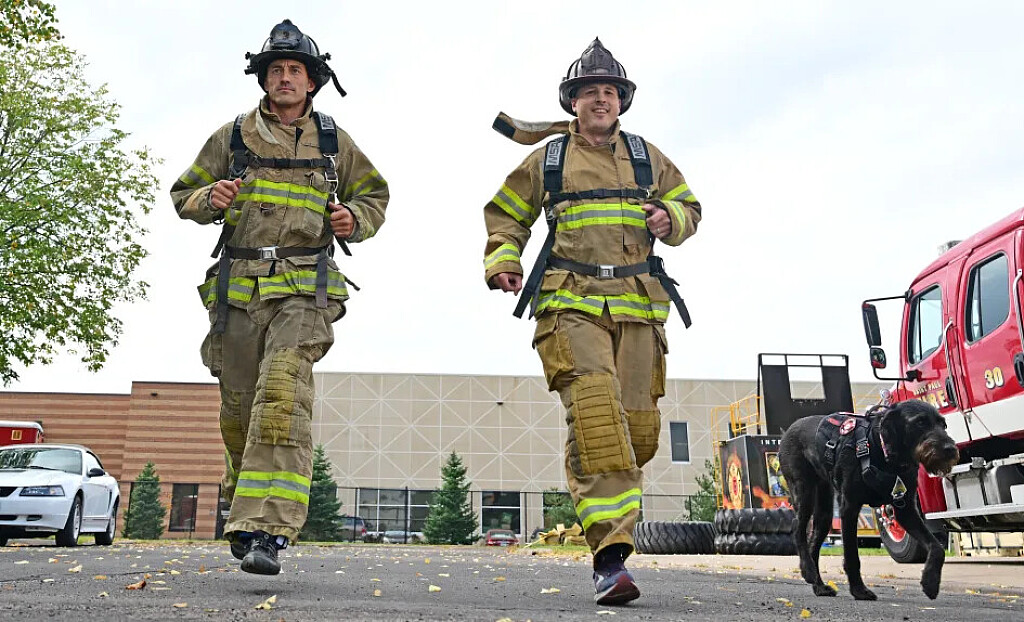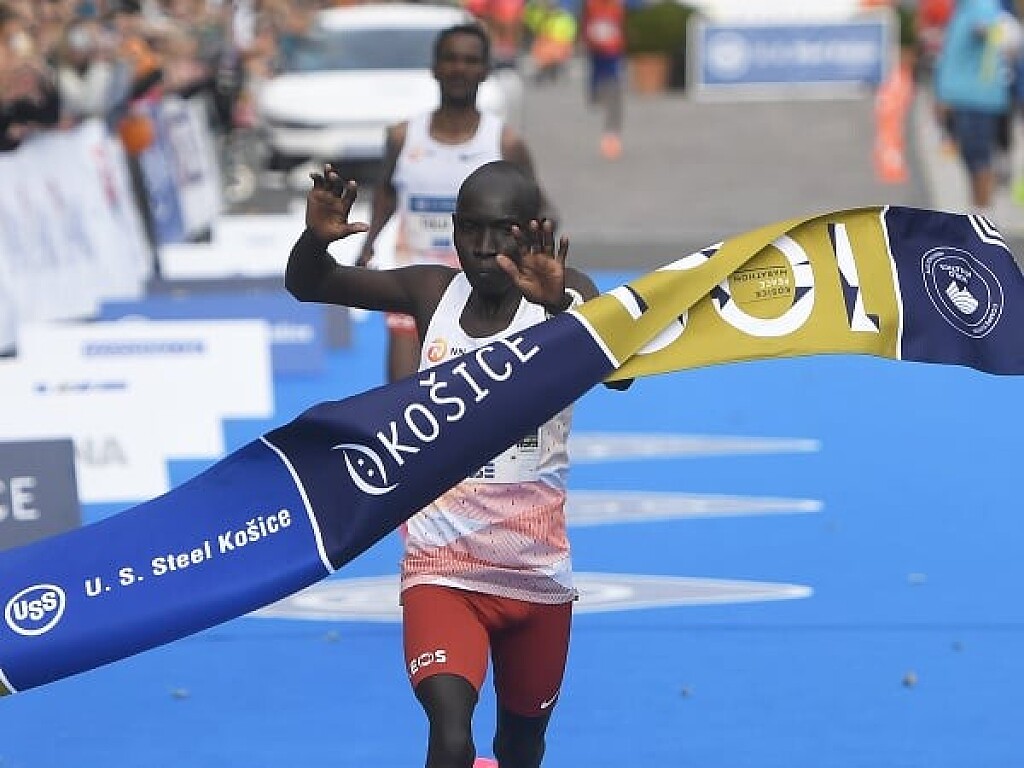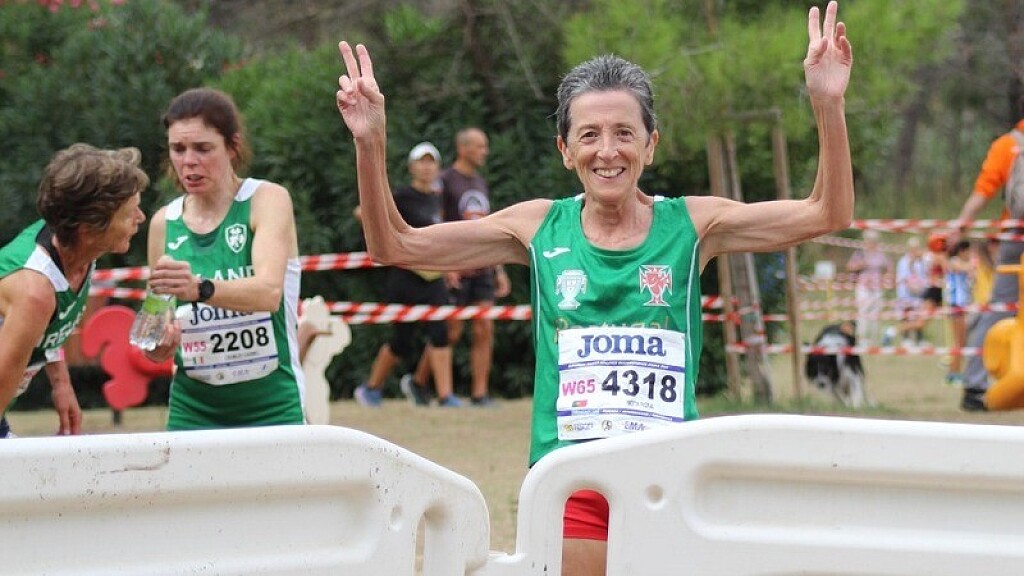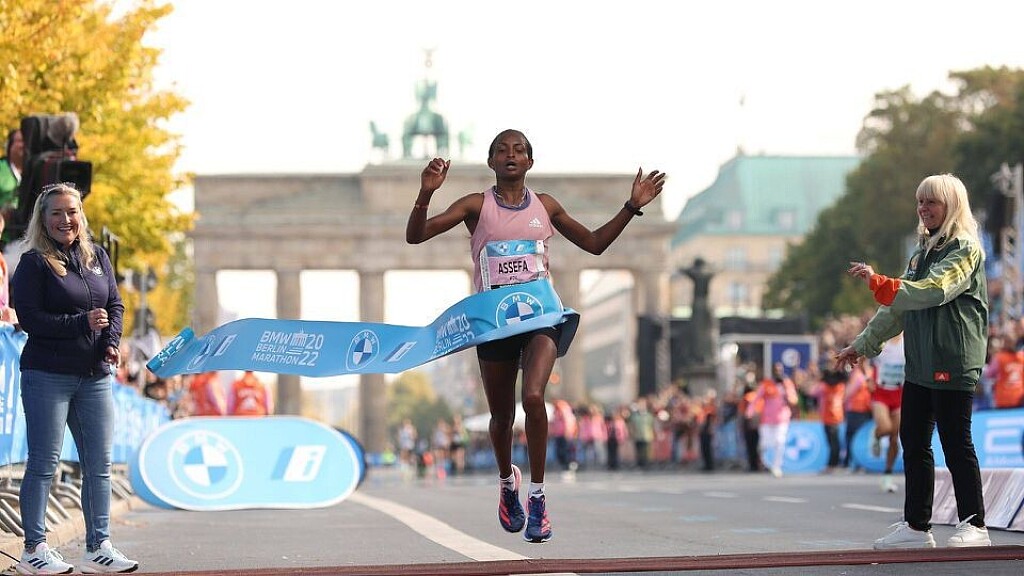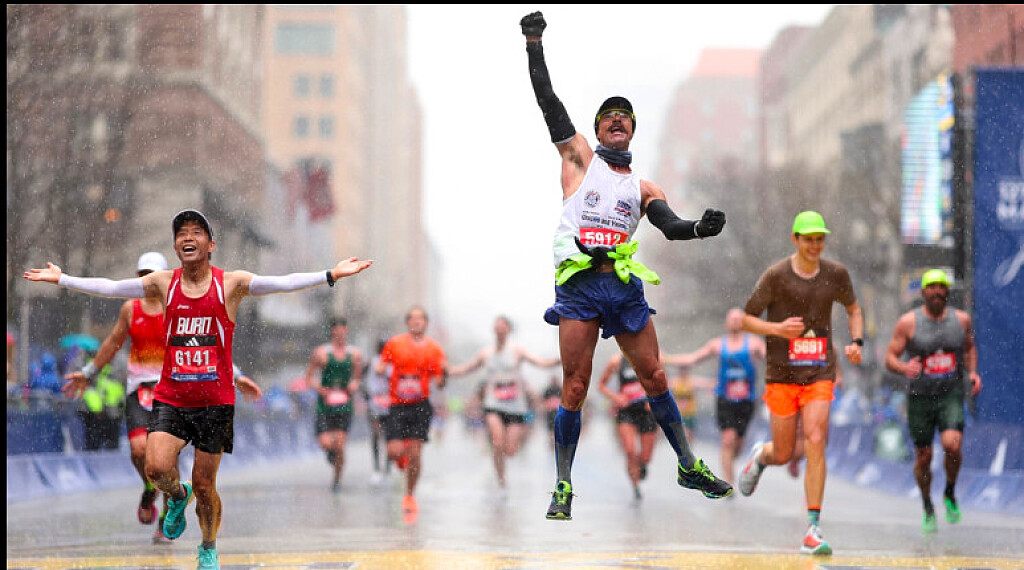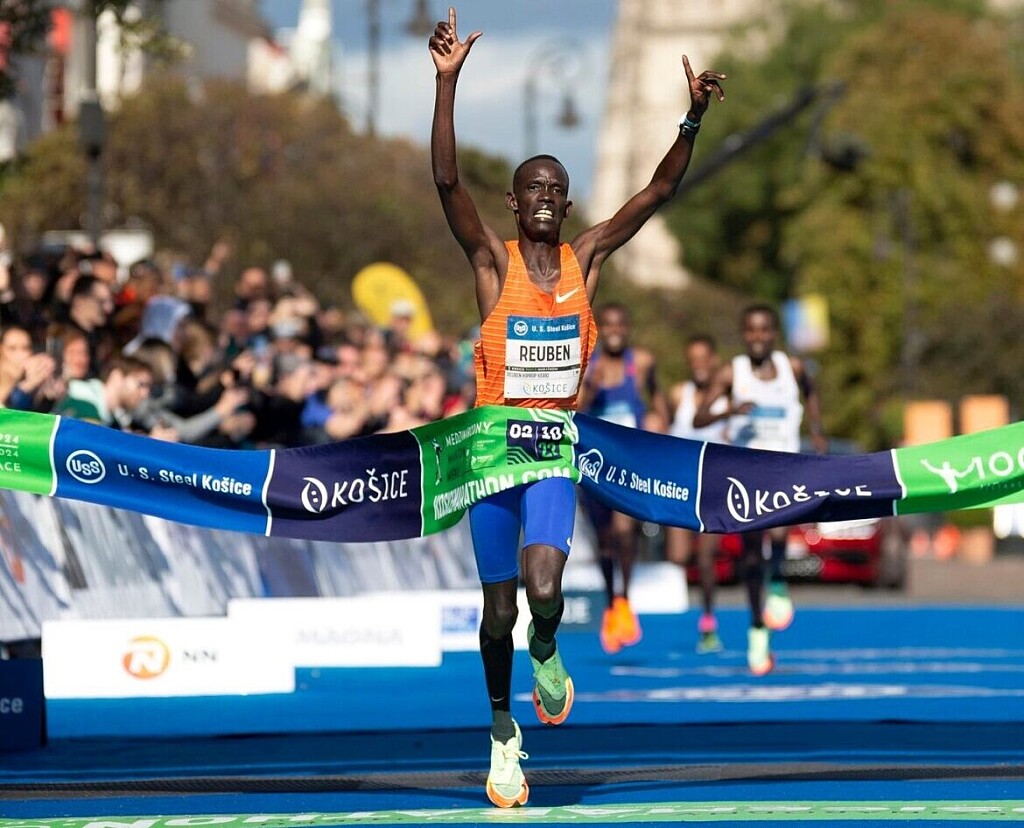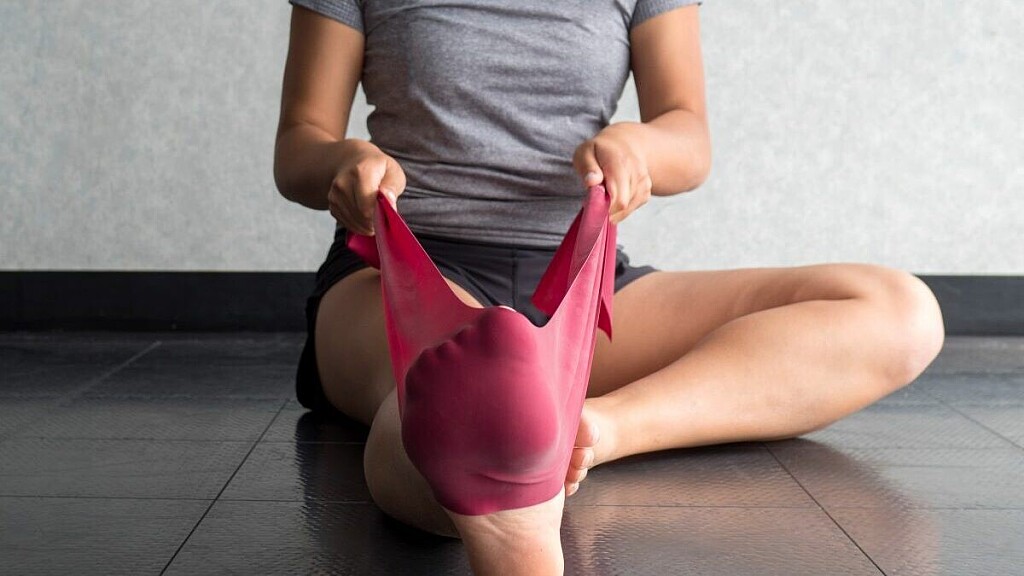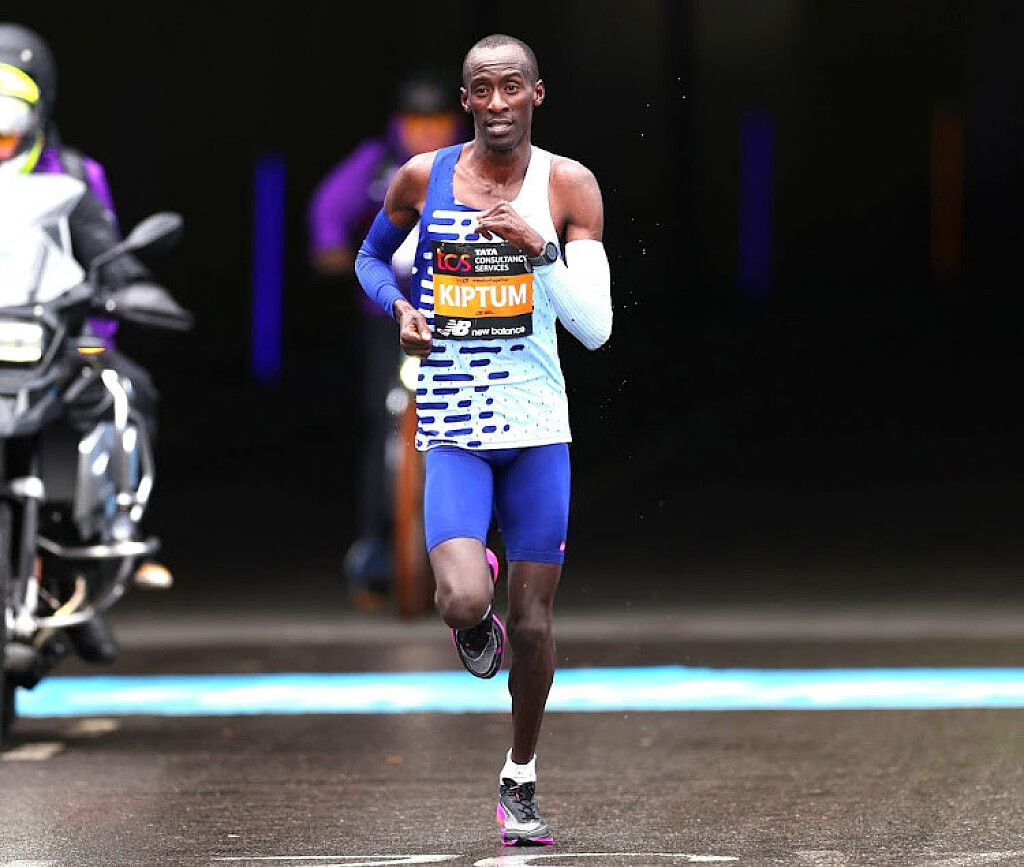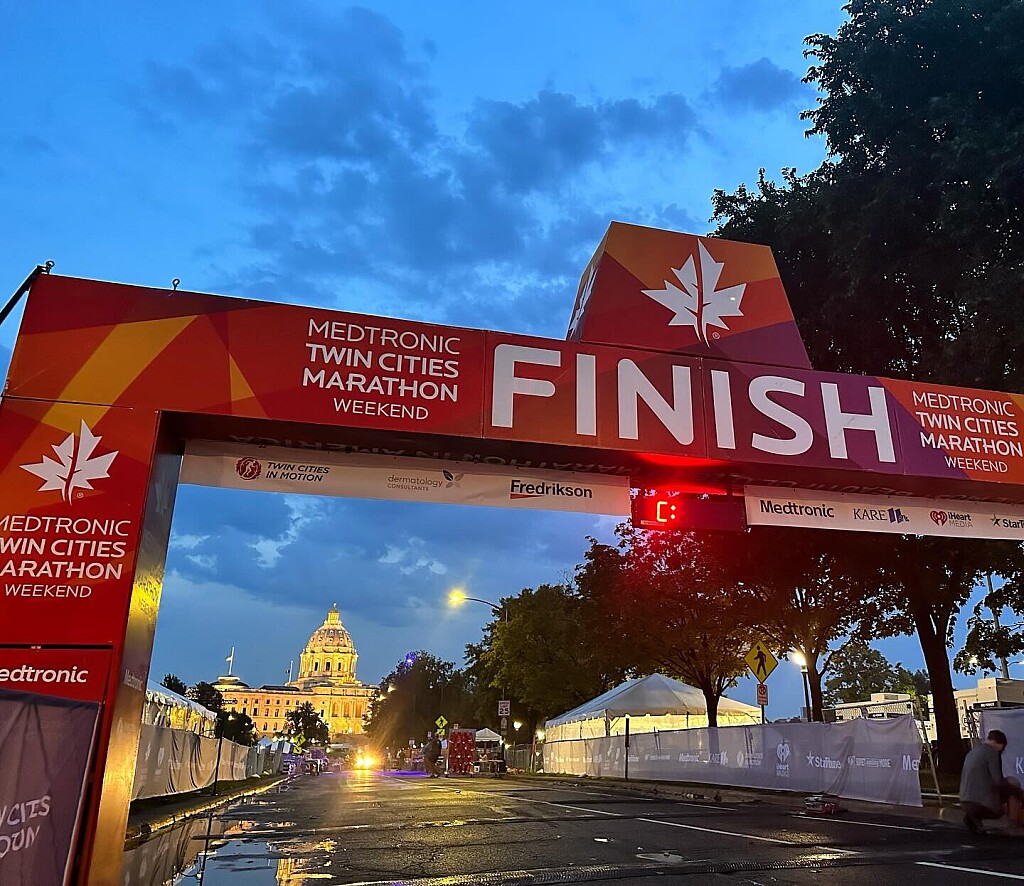Running News Daily
Top Ten Stories of the Week
10/7/2023
These are the top ten stories based on views over the last week.
St. Paul firefighters tackling the Twin Cities Marathon in full gear for a cause
Among the sea of runners in shorts and tank tops in the Twin Cities Marathon, two will stand out for what they’re wearing: They’ll be in their St. Paul firefighter turnout gear and helmets.
Their heavy gear won’t be ideal for the expected temperatures, but that’s not why they’d rather not be there. It’s because of what their presence represents: Capt. Kyle Bode and firefighter Bryan Buxton are taking part in the marathon for their fallen co-workers, who they wish were alive and not having people run in their memories.
They’re trying to bring attention to the job-related risks to firefighters: cancer, cardiac problems and suicide linked to trauma that builds up from what firefighters witness in their work. Five active-duty St. Paul firefighters have died of such causes in the last eight years.
After St. Paul Fire Capt. Chris Parsons passed away of a heart attack at age 48 in June, Bode said he was sick of seeing his friends from the fire department die.
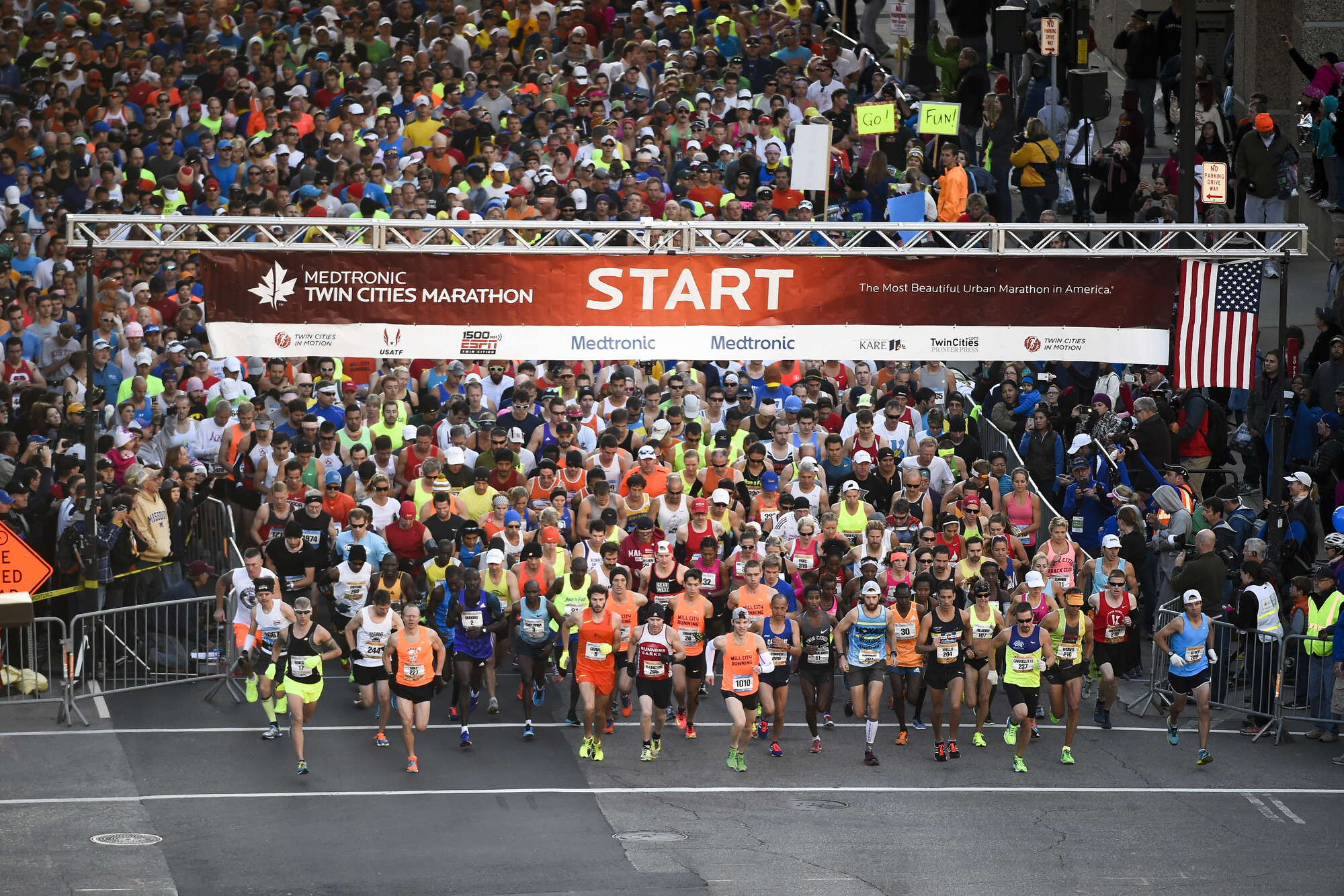
“I don’t like sitting around and I’m frustrated and I want to do something,” Bode said recently. He said the community might notice when individual firefighters die unexpectedly, “but I don’t know if anyone realizes the big picture of how many people we’ve lost.”
Bode and Buxton enjoying taking on challenges — like the impromptu time they decided to see who could do the most burpees (Buxton reached 750 over three hours). And the men knew they needed to do something on a large scale. Running a 5K in their full gear wouldn’t cut it.
They thought participating in the marathon in their gear would be a way to raise awareness and donations to a nonprofit foundation for firefighter wellness.
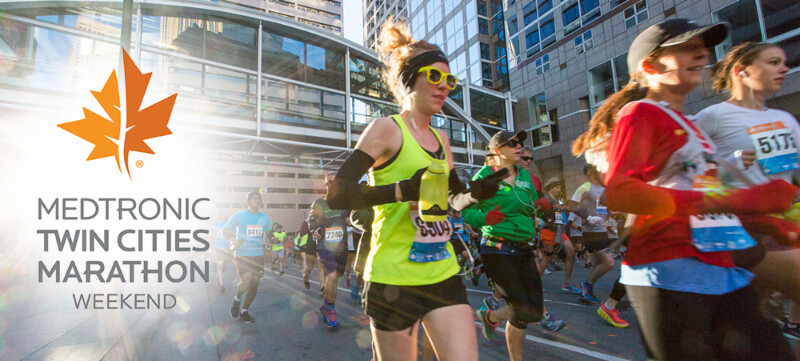
More than 20,000 people are registered for the Twin Cities Marathon and 10-mile race on Sunday. With projected highs in the 80s this weekend, and the National Weather Service saying it will feel more like summer than fall, organizers are warning racers to prepare for high temperatures and high humidity. St. Paul firefighters and paramedics will be along the route in the Capital City to ensure racers are safe and healthy, said Deputy Fire Chief Roy Mokosso.
Getting support from fellow firefighters
Some of the stigma around mental health has meant firefighters not talking about the horrors they respond to on emergency calls, and Bode and Buxton are trying to break that down just by asking for help with the marathon.
“In the past, it’s been very difficult for firefighters to ask for help because we’re the ones that help people,” Buxton said. “We’re making that change and we’ve reached out to people at the fire department and said, ‘We need help. We’re not sure if we’re going to be able to complete this task.'”
Off-duty firefighters will be along the marathon route to provide nutrition and hydration to Buxton and Bode, as well as moral support.
Buxton has run the distance of a marathon (26.2 miles), but not an official marathon; he’s done triathlons, mud races with obstacle courses, and rucking events (long walks while carrying a weighted rucksack).
Bode has run seven marathons, mostly the Twin Cities Marathon, and competed in Iron Man triathlons.
“I’m pretty slow,” Bode said. “I wouldn’t qualify for Boston (the marathon) or anything. I just like to push myself.”
They’ll stick together through the race course
Bode has been a St. Paul firefighter for nearly 18 years and the department’s health and wellness coordinator for about a year. He works with all firefighters and with cadets as they go through the department’s fire academy.
“My focus has been on trying to prevent some difficulties that firefighters face later on, whether it be mental health or making sure they keep their health a priority,” he said.
The St. Paul Fire Department has a peer support group, a peer fitness team and a cancer task force that works to reduce how much exposure firefighters have to dangerous chemicals from fires.
Buxton is a St. Paul firefighter of 10 years who’s currently a training assistant. He’s helping to run the fire academy that started Monday.
Buxton and Bode initially thought they’d walk Sunday’s marathon, but then they realized the time limit is six hours. They’re planning a combination of jogging and fast walking, and their goal is to complete it in time.
They’re going to start at the back of the pack and stay together the whole time. They plan to wear about 40 pounds of turnout gear — that’s the protective jacket, air tanks (but not the breathing masks they’d usually wear with them) and helmet that firefighters don to battle fires. They’ll likely start and end the race in pants that are part of the gear, but otherwise wear shorts.
Both men are also paramedics for the fire department, and said they’ll be watching over each other. They’ll be making sure they get plenty of electrolytes and hydration. If they feel overheated, Bode said they’ll take off their jackets until they cool down.
“We have a rule in the fire service: Two in, two out. You go in the fire together, you leave the fire together,” Buxton said. “We don’t want anybody to be alone and we’re taking that same tactic in this race. We’re going in together, we’re coming out together.”
Mokosso, the deputy fire chief, will be running Sunday’s 10-mile race for Capt. Parsons. Mokosso wasn’t planning to run this year, but after he saw that Parsons had signed up before he died, he asked Parsons’ family if he could take his spot and run in his honor.
“Chris has been at the top of my mind every run,” Mokosso said of his preparation for the race. “We were both the same age, we had a lot of things in common, and he and I had run a couple of marathons together.”
Annika Parsons, Chris’ younger daughter, said every way that people honor her father is meaningful to her and her family.
Chris Parsons was known for his statewide advocacy for firefighter health and safety, and he was physically fit, “so when it happened to him, it showed how it can happen to anyone,” Annika Parsons said. “Getting the word out really can help firefighters in the future, too.”
When Bode and Buxton need motivation, they expect they’ll be remembering their co-workers and families they left behind: Capts. Chris Parsons and Mike Paidar, and firefighters Tommy McDonough, Jason Woodbury and Shane Clifton.
(09/30/23) Views: 122Mara H. Gottfried
Kenyan runner Philemon Rono breaks old Košice marathon record
Kenyan Philemon Rono won the 100th edition of the International Peace Marathon in Košice (MMM) in a course record of 2:06:55.
"I'm happy that I managed to create a record. It's a great achievement, I appreciate it a lot," said Rono.
He beat Lawrence Kimaiya's previous record from 2012 by six seconds.
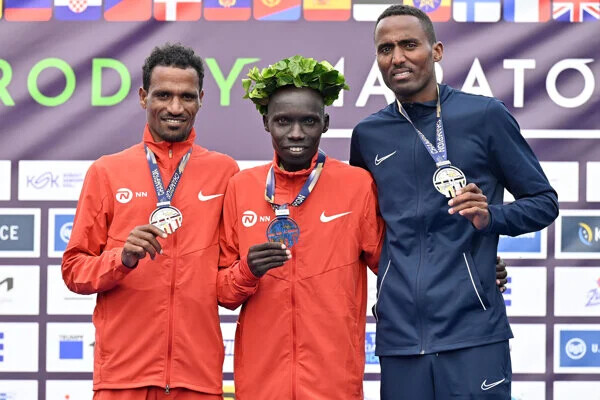
In a dramatic finish, he pushed the Ethiopian Kebede Wami Tulu to second place (+1 s). The Eritrean runner Berhane Berhe Tesfay, who crossed the finish line 12 seconds after the winner, came third.
A three-time MMM champion, Kenyan Reuben Kiprop Kerio was fourth with a time of 2:07:56 h. Had he won, he would have equaled the Hungarian runner József Galambos's score. Galambos won the Košice marathon four times.
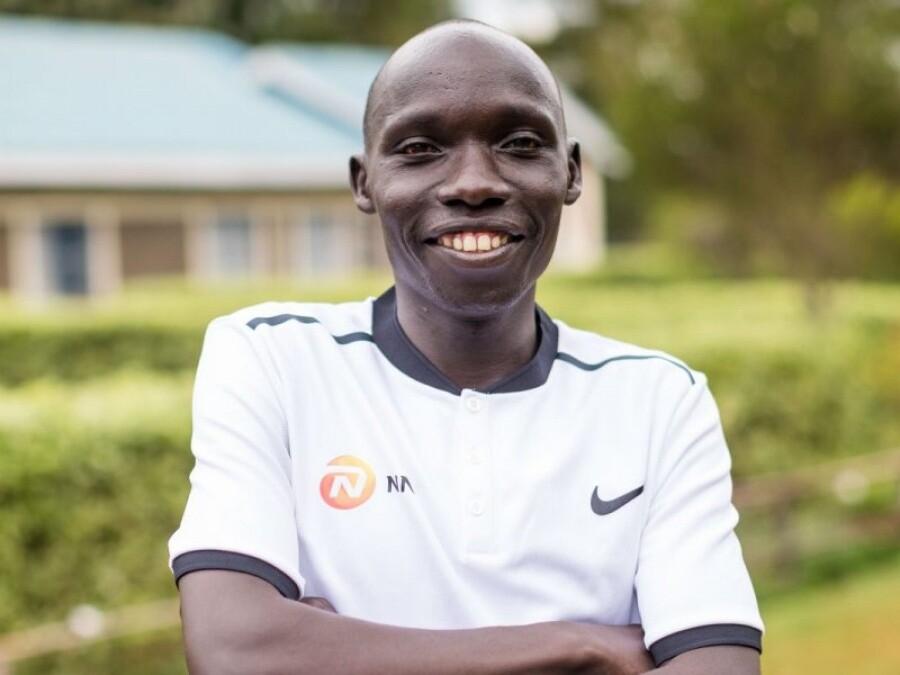
Marek Hladík was the best Slovak male runner on Sunday. He is the winner of the 2020 edition. On Sunday, he was classified at the finish line in 9th place with a time of 2:22:14 h.
In the women's category, the Kenyan Jackline Cheron enjoyed the victory, finishing the run in 2:24:43 h. Two Ethiopian runners shared the stage with her - Adawork Aberta Saduro (+1:36 min) and Ayantu Kumela Tadesse (+1:50 min).
Among Slovak women, Veronika Páleníková was the best. She ended in sixth place with a time of 2:45:52 h.
(10/02/23) Views: 112Portuguese Rosa Mota breaks half marathon world record for veterans running 1:26:16 in Riga
Portuguese Rosa Mota broke the half marathon world record for athletes between 65 and 69 years old, completing the distance in 1:26:16 hours, taking more than six minutes off the previous best mark.
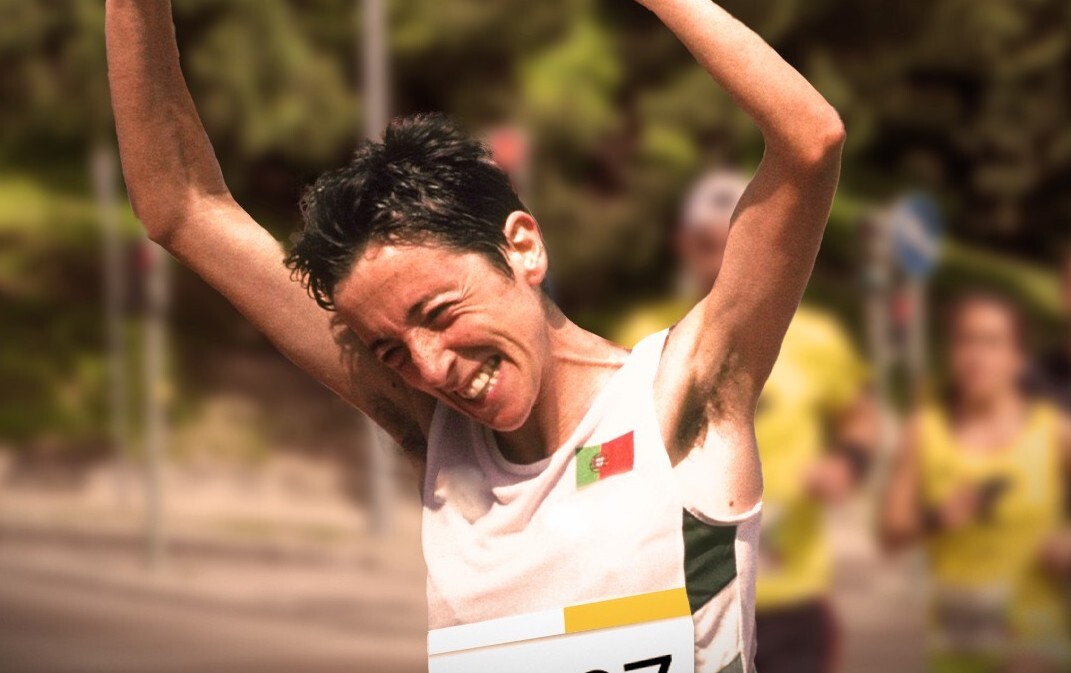
In the parallel race to the World Road Championships, the Olympic marathon champion in Seoul 1988 was 13th overall and won the race in her age group, surpassing the mark of Swiss Emmi Luthi, who had run in 1:32.56 in 2009.
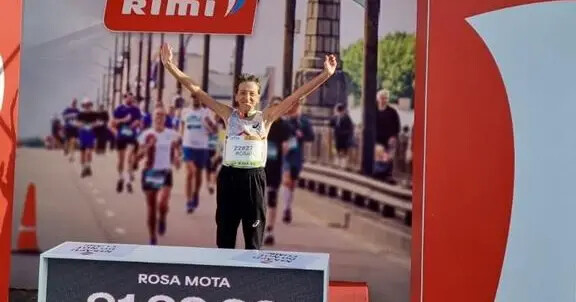
Rosa Mota was more than 22 minutes behind the runner-up, Finnish Kaarina Back (1:48.41).
Last week, Rosa Mota had won the European cross-country veterans championship, at the same level.
(10/03/23) Views: 104Tigst Assefa on how career threatening injury spurred her to breaking world marathon record
Ethiopian marathoner Tigst Assefa defied a career-threatening injury to smash the world record and has revealed the relentless journey from setback to historic triumph.
Ethiopian marathoner Tigst Assefa left the world in awe with her remarkable feat, smashing the women's world record in Berlin last Sunday by clocking an astonishing two hours, 11 minutes, and 53 seconds.
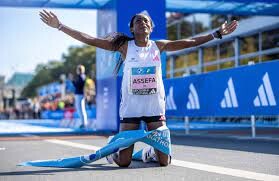
However, her journey to this historic achievement was not without its hurdles. In a shocking revelation, Assefa disclosed that just four years ago, she was told her athletics career was effectively over following a severe Achilles tendon injury during the 2019 Valencia half-marathon.
At the time, medical experts in both Spain and Italy, where she received subsequent treatment, painted a grim picture. They concluded that her chances of returning to the sport were minimal.
Yet, defying the prognosis, Assefa, fueled by determination, familial support, and the unwavering belief of her coach, embarked on a relentless journey to prove the naysayers wrong.
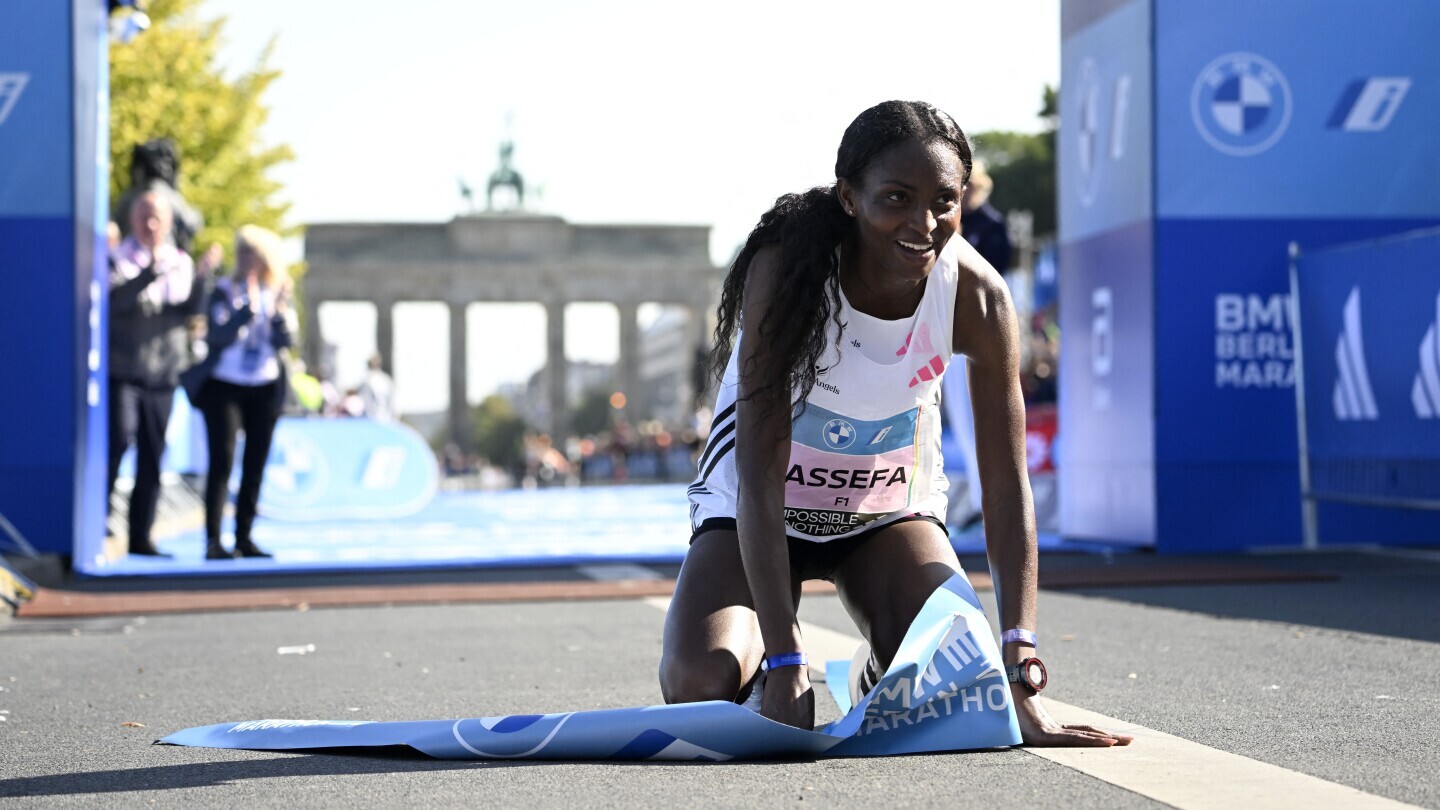
"I did not give up. I told myself I will get back and make history," Assefa declared in an exclusive interview with BBC Afaan Oromoo.
Reflecting on the injury that almost derailed her career, she added, "I will never forget my injury. But at the same time, it helped me to work hard. I could not have seen this day if it were not for the injury."
Assefa's unyielding spirit and competitive drive were pivotal in her triumphant return to the pinnacle of marathon running.
"I am fiercely competitive. I don’t like to lose," she asserted, revealing that her newfound goal is to complete a marathon in under two hours and 10 minutes.
"It could be broken [again] with better training. This is because [in Berlin] I was not tired. I had energy," Assefa stated.
Behind this extraordinary athlete stands the guiding force of coach Gemedu Dedefo, who believes that with the right support, women in athletics can achieve even greater feats.
(09/30/23) Views: 99Festus Chuma
The 2024 Boston Marathon Acceptance Letters have Arrived. Here’s What the Data Tells Us.
A record-breaking number of qualified applicants registered for 128th running of the world’s oldest annual marathon
The 128th Boston Marathon presented by Bank of America just began informing qualified applicants of their status this morning, and the numbers are as fascinating as they are fast.
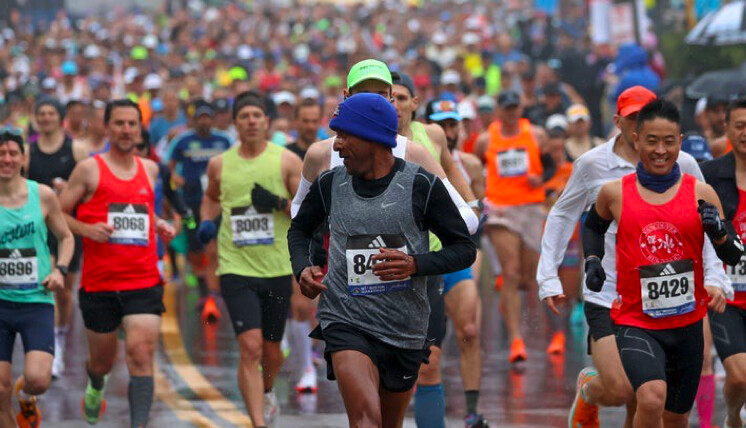
After 33,058 qualifier applications came flooding in during registration week earlier this month to run next year’s race—taking place on April 15, 2024—22,019 applicants were accepted (pending final verification).
“This year’s registration week resulted in the highest number of qualified applicants in race history, a testament to the strength of the marathon community,” said David Tyrie, Chief Digital Officer and Chief Marketing Officer for Bank of America.
To gain entry into the Boston Marathon requires each runner to have an official qualifying race prior to applying, with finishing times established by both gender and age. However, with such high demand for the race by qualified runners, the unofficial “cut-off” times for being accepted into the race are often minutes faster than the official qualifying standards.
For the 2024 Boston Marathon race, this year’s “cut-off” time needed to gain acceptance was 5 minutes, 29 seconds or faster than the official qualifying time. For example, say you are a 40-year-old male applicant. The official B.A.A. qualifying standard for this age/gender is 3 hours, 10 minutes. But in order to be accepted into next year’s race, any qualifying times slower than 3 hours, 4 minutes, 31 seconds would not be accepted.
This stout benchmark translated this year to more than 11,000 applicants not being accepted into next year’s Boston Marathon.
Looking into the 22,000-plus runners who were just notified of their acceptance—with ages ranging from 18 to 82—here’s how the numbers break down: 12,535 men, 9,440 women, and 44 non-binary athletes from all 50 states. In addition, automatic entry is offered to those who’ve finished 10 or more previous Boston Marathons, and 660 of these applicants were granted entry.
What’s also interesting is that over one-third of the entire field at next year’s Boston Marathon will be newbies—11,391 of the accepted applicants will be running Boston for the first time.
The Boston Athletic Association (B.A.A.) was established 1887, and has become a non-profit organization that manages the Boston Marathon and supports comprehensive charity, youth, and year-round programming. The Boston Marathon is part of the Abbott World Marathon Majors, along with international marathons in Tokyo, London, Berlin, Chicago, and New York City.
Athletes interested in running next year’s race as part of a fundraising effort, affiliated with select charity programs, are invited to contact the nonprofit or organization to see what opportunities there are. Read more about the race’s charity program.
The 2025 qualifying window has already begun on September 1, 2023, and further registration information will be announced following the conclusion of the 128th race. Stay tuned—and keep training.
(09/30/23) Views: 98Outside Online
Agai, Kerio seek to defend Kosice Marathon titles on Sunday
Margaret Agai and Reuben Kiprop Kerio will be seeking to defend their titles at the Kosice Peace Marathon on Sunday in Slovakia.
Agai won the title in a new course record of 2:24.04, smashing the previous mark of f 2:24:35 held by Ethiopian Ayuntu Tadesse.
Agai, who has a personal best time of 2:23:28 set while winning the 2013 Daegu Marathon, starts as favourite in the race.
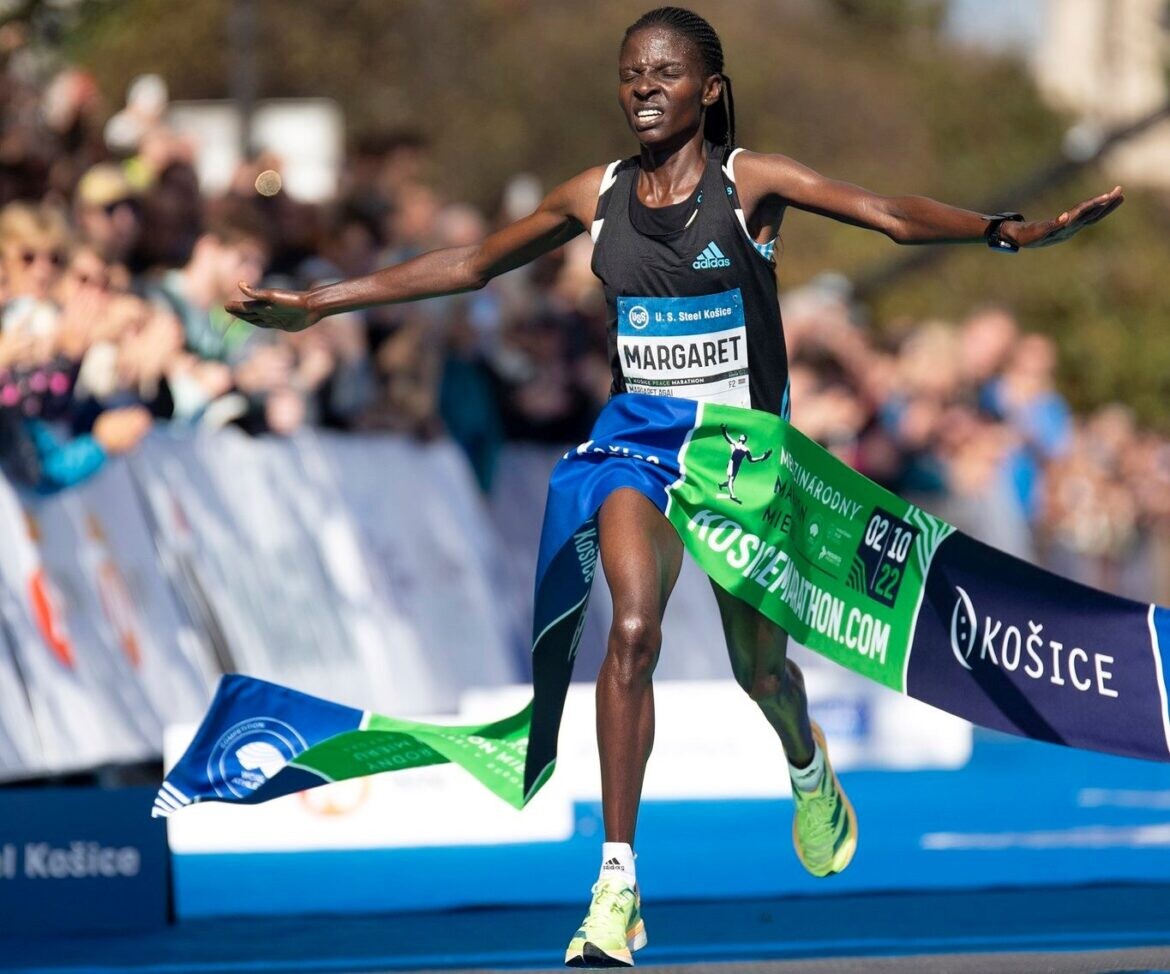
The 2022 Kigali Peace Marathon champion is familiar with the course and will be up against the Ethiopian trio of Adawork Aberta (2:23:39), Ayantu Kumela (2:24:29) and Maeregu Hayelon(2:24:42)among others.
In the men's race, Kerio who will be chasing his fourth title, will be up against three-time Toronto Marathon champion Philemon Rono (2:05:00), Kebede Tulu (2:05:19), and Aychew Bantie (2:06:23).
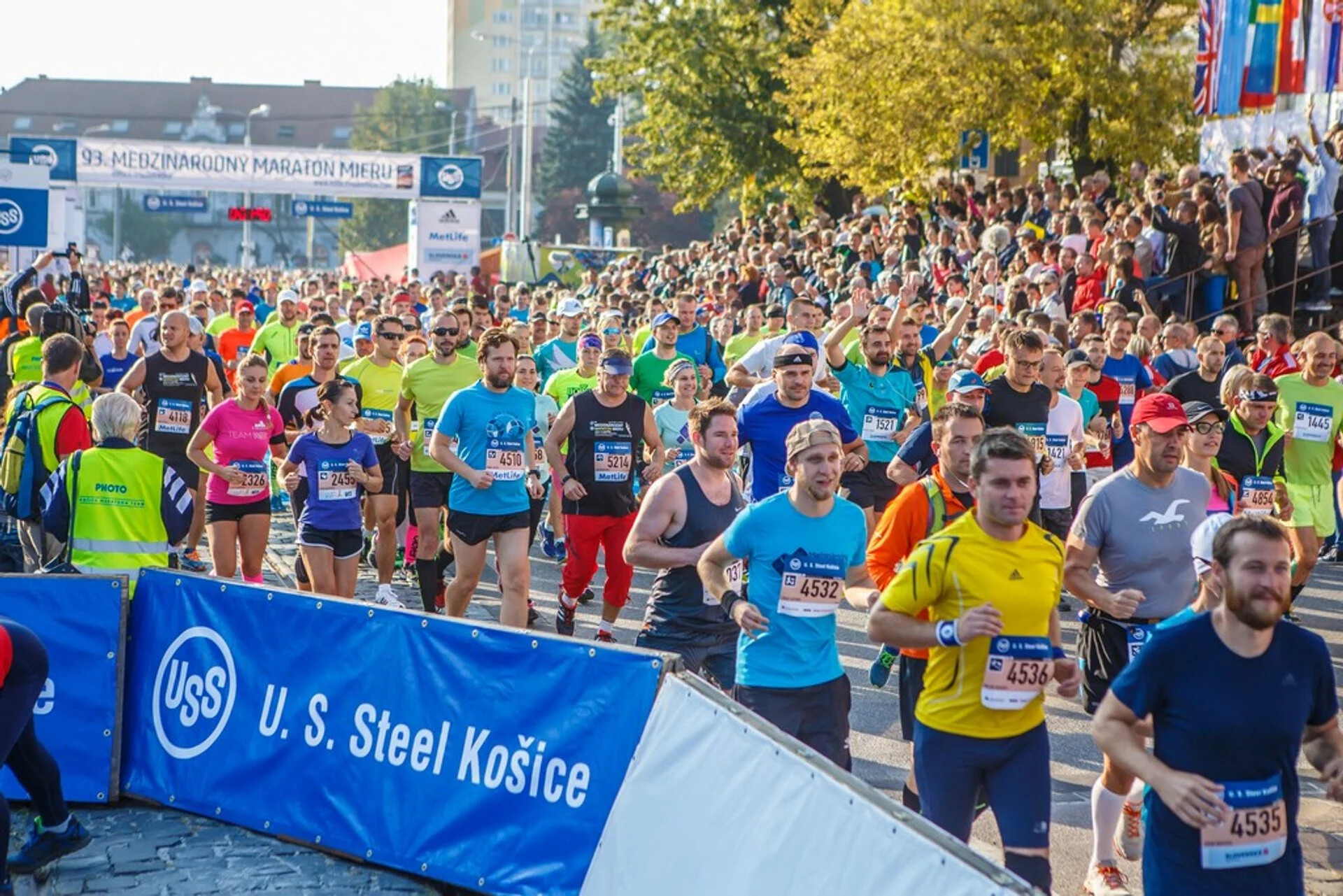
Kerio, who won the title in 2:07:16 ahead of Ethiopians Bantie Dessie Aychew (2:07:19) and Mehasha Tadesse Yohans (2:07:19), will have a big task shaking off experienced Rono who has dominated many marathons across the world.
Coming into the race with a personal best of 2:07:00 set at the 2019 Eindhoven Marathon when he finished second, Kerio has won the race three times thus 2017, 2021, and 2022.
Kerio has also won in other marathons including victories at Rock and Roll in 2019 and Brescia in 2016. He finished second at the Eindhoven and 2020 Xiamen Marathon. He was fourth and fifth at the 2018 Kosice and Izmir marathons respectively.
Rono, popularly called the Baby Police due to his height and body size, will be the man to watch after winning the Toronto Marathon titles in 2016, 2017, and 2019.
Elsewhere, Kenyans will be chasing the Trento Half Marathon titles in Italy. Alex Korio with a personal best of 58:51 will be the best Kenyan on the course behind Ethiopian Muktar Idris with a PB of 58:40.
The duo will be up against the Kenyan pair of Dickson Nyakundi (60:39) and Bernard Wambua who has 60:51.
In the women's race, Ethiopian Worknesh Degefa Debele with 66:14 leads Kenyans Joyciline Cherotich, and Christine Mutua with Ethiopian Etenesh Diro making his debut in the race.
(09/29/23) Views: 88Emmanuel Sabuni
Three exercises to never sprain your ankle again
For most runners, especially those tackling trails, ankle sprains are a frequent problem that can impact their training and performance. It’s a common temptation to downplay the discomfort of an ankle sprain and underestimate its possible repercussions, but sometimes disregard can only aggravate the issue. Ankle sprains often result from weak muscles and insufficient attention to the foot, which, in turn, can place increased stress on the ankle joints. So, how can you avoid them for good?
David London, a physiotherapist with The Runner’s Academy in Toronto, shares three exercises with a resistance band and a dumbbell for strengthening the muscles and tendons around the ankle, to help make sure you never sprain your ankle again. “Preventing ankle sprains through targeted exercises is paramount for runners,” says London. “Ankle instability issues can lead to a host of injuries, including shin splits, knee pain and hip issues.”
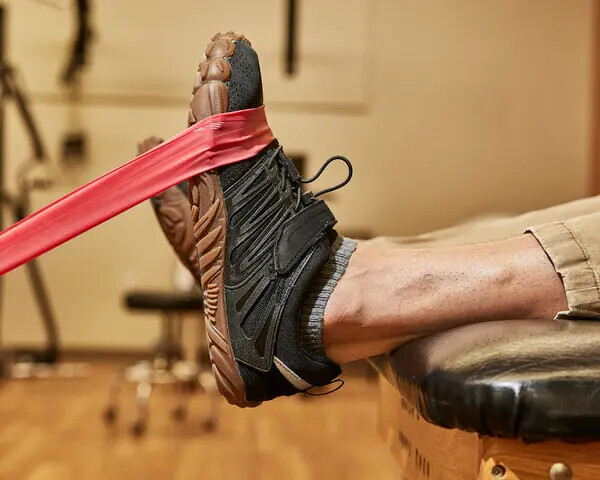
The purpose of these three exercises is to build eccentric strength around your ankles, making them resilient, to prevent further sprains.
Banded ankle extensions: Using dumbbell and band. Make sure you have enough resistance and place the band on either side of your ankle bone, making sure the force is pulling back and downwards. Now lean forward and put your weight through the ankle and the foot. And you should feel a little bit of that resistance creating some space in the joint, and stretching through the back of your ankle.
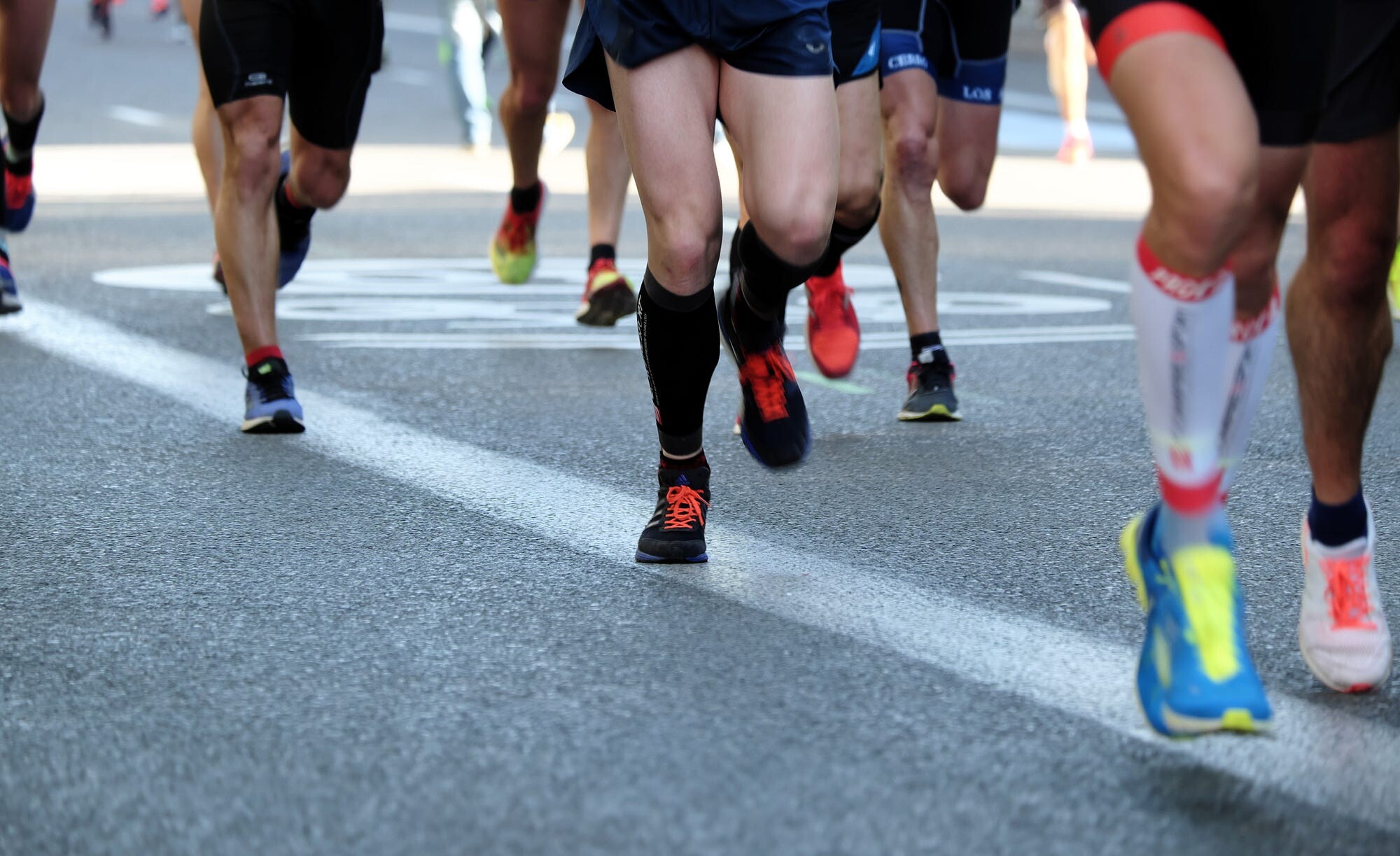
One-legged pendulum balance: Pick up one dumbbell and create a tripod with your foot. Put the balance in your big toe, your pinky toe and your heel, making sure your balance is strong and set before you lift your other foot off the ground. Once you find your balance pass the weight side to side like a pendulum without letting the ankle roll.
Eccentric calf raises: Put your heels over the edge of a step with your toes on the ball of your feet. Elevate your heels as high as you can by standing on the balls of your feet. Come up straight and come down slow without letting that foot wobble to strengthen those muscles around the ankle. Repeat five to ten times.
David London points out that strengthening improves mobility around the joint and also reduces the risk of experiencing this recurring injury during high-impact activities. “Incorporating these exercises into a runner’s training regimen can significantly enhance performance and allow them to continue training without setbacks,” says London.
(09/30/23) Views: 88Marley Dickinson
Add plyometrics to your warmup for increased power and strength
Plyometrics, a.k.a jump training, involves quick, explosive jumping movements that help build muscle strength. With the aim of having minimal contact time with the ground, plyometrics help runners train their fast-twitch muscles to respond more quickly.
Adding plyometric movements to the end of your warmup (after you have run easy for 10 minutes) is a great way to prepare your body for the most efficient and effective training session possible.
A-skips and B-skips
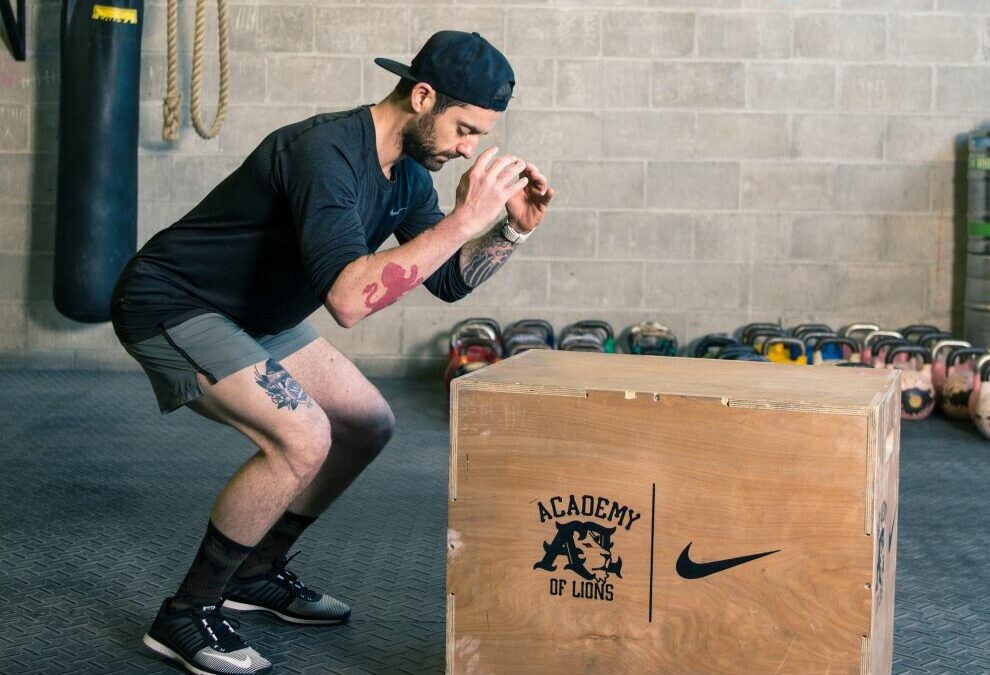
Skipping drills activate the calf muscles, quads and core, improving co-ordination and balance while warming up the muscles.
A-skips:

Begin standing tall with your arms at your side.
Skip forward while focusing on driving one knee upward as high as possible while keeping the opposite leg extended. When one knee is at its highest point, push off the toes of the other foot.
Swing your opposite arm forward to chest height as the knee rises, and alternate arms legs and arms.
B-skips:
As you lift one knee, flex the hip and knee to a 90-degree angle. When your knee reaches its highest point, extend your leg in front of you, then pull it back down quickly before the next step.
Co-ordinate this motion with the opposite arm, swinging it to your chest as your knee comes up. The entire process should look like skipping with added leg extension and flexion.
Box jumps or vertical jumps
These exercises can improve running speed and efficiency by enhancing lower body strength and power. You will need a sturdy box or platform.
Stand facing the box, with your feet shoulder-width apart, and keep a slight bend in your knees.
Bend your knees and hips, exploding upward with maximum effort, and swinging your arms forward for momentum. Land on the box with both feet, keeping your knees slightly bent to absorb the impact.
Carefully step or jump back down to the starting position.
Bounding
Bounding involves exaggerated running strides with an explosive push-off. It activates the hip flexors, glutes, and hamstrings, improving your running stride and power.
Stand upright with good posture, and keep your feet hip-width apart.
Take a large, exaggerated stride forward with one leg, and as you push off with your back leg, engage your core and swing your arms for momentum.
After landing on the front foot, immediately transition into another bound with the opposite leg.
If you’re new to plyometrics, it’s important to start with low-intensity exercises and gradually increase intensity and volume. Because of the potential risk for injury, consider consulting a trainer or coach to make sure you are using proper form and technique.
(09/29/23) Views: 83Keeley Milne
Kiptum eyes world record at next week's Chicago Marathon
London Marathon champion Kelvin Kiptum has his eyes set on breaking Eliud Kipchoge’s world marathon record when he steps up to compete at the 2023 Chicago Marathon on October 8.
Kiptum won the London Marathon on April 23 in a time of 2:01:25, in what was his second-ever marathon race—nearly obliterating the world record of 2:01:09 set by Kipchoge at the Berlin marathon in 2022.
He ran the fastest-ever marathon debut at the 2022 Valencia Marathon, becoming the third man in history to break two hours and two minutes after he wrapped up the race in 2:01:53.
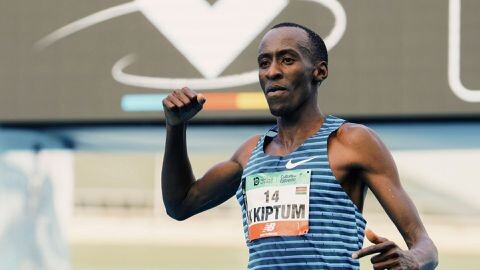
Only three men in history have run under 2:02, and Kiptum is the only marathoner to do it under the age of 35.
The 23-year-old announced his attendance in the Chicago Marathon on his Facebook page with an exciting message informing his fans to prepare for an incredible showdown.
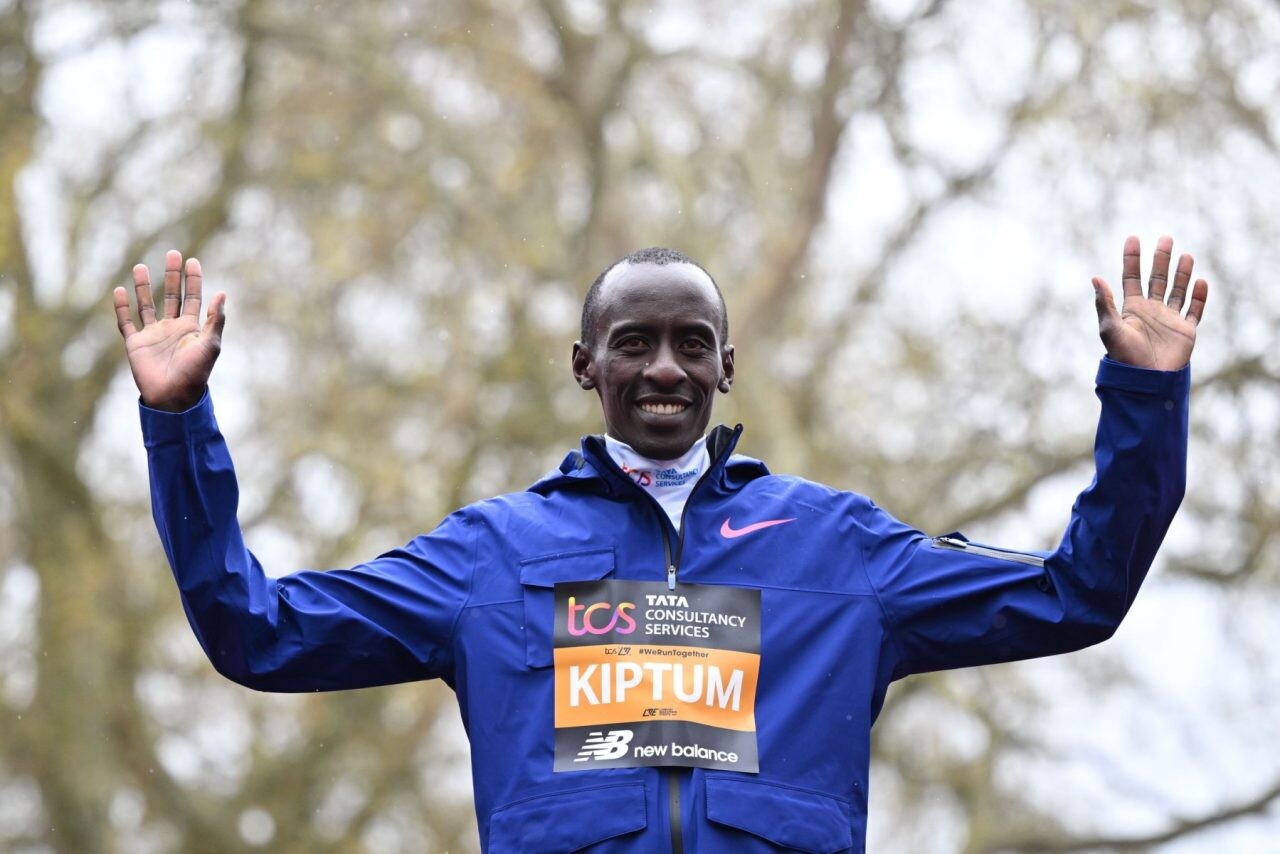
“I’m heading for the 2023 Bank of America Chicago Marathon. Get ready for the show,” the post from Kiptum read.
The elite athlete reportedly opted out of the Budapest 2023 World Athletics Championships and the Berlin Marathon to focus on Chicago.
A lot of fans had expected to witness the duel between Kiptum and Kipchoge at the Berlin Marathon track to gauge his speed against the two-time Olympic champion.
He will be joined by 2022 Chicago Marathon winner Benson Kipruto who set a personal best time of 2:04:24 when he won the race.
Kipruto also finished third in the 2022 and 2023 Boston Marathon with times of 2:07:27 and 2:06:06. He will be eying to defend his title against a youthful and promising Kiptum.
The two will be joined by fellow Kenyans John Korir who has a marathon best of 2:05:01 and debutants Daniel Mateiko and Wesley Kiptoo.
The Kenyan contingent will face a hard time from Somali-based Belgian Bashir Abdi who won gold in the 2020 Tokyo Olympics.
USA’s Galen Rupp, silver medalist in the men’s 10,000m at the London Olympics and bronze medalist in the men’s marathon in the 2016 Rio Olympics, will represent the hosts in the race.
They will also face stiff competition from Seifu Tura who won the 2021 Chicago Marathon and placed second at the 2022 edition.
Defending champion Ruth Chepngetich will lead the women’s pack seeking to break Ethiopia’s Tigst Assefa’s record of 2:11:53 set just recently at the Berlin marathon.
Chepng’etich, who won the Chicago Marathon in October last year, was only 14 seconds away from breaking the previous world record by Brigid Kosgei of 2:14:04.
She will be joined by Joyciline Jepkosgei, who finished second in the 2022 edition of the London Marathon, and Stacy Ndiwa who has a PB of 2:31:53.
Ethiopia’s Genzebe Dibaba will be a tough opponent for the Kenyan ladies. Dibaba is the current world record holder in indoor mile, 3,000m and 5,000m. She is also a gold medalist in the 1,500m at the 2015 World Championships.
USA’s Emily Sisson, who currently holds the American record in the marathon, will be seeking to upset the African girls. Sisson set the record on October 9 during the Chicago Marathon when she finished second in a time of 2:18:29.
The event has attracted 47,000 participants, the biggest field ever with the 2019 edition having featured 45,932 participants.
(09/29/23) Views: 83Teddy Mulei
Twin Cities Marathon canceled due to heat two hours before start
Nearly 20,000 runners in Minnesota were left frustrated on Sunday morning after the Twin Cities marathon and 10-miler was canceled two hours before its 7 a.m. start due to heat.
The temperature in Minneapolis was forecasted to reach an unseasonably high 28 C (82 F) by 11 a.m., according to the National Weather Service. The average high for the Minneapolis-Saint Paul area around this time of year is around 18 C.
In the days leading up to the race, organizers had cautioned about potentially unsafe weather conditions. However, the race was still planning to proceed with extra safety measures implemented.
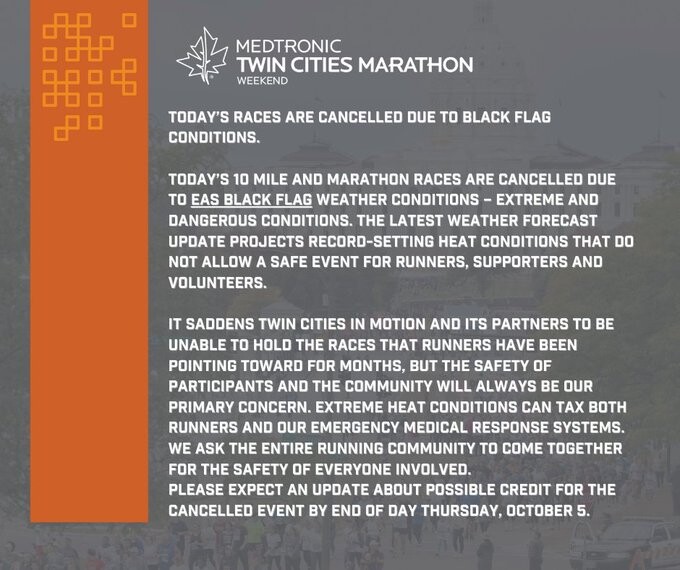
The Sunday morning forecast in Saint Paul elevated the races into black-flag status (which stands for “extreme and dangerous conditions”), which prompted the cancellation. As many as 8,000 runners were set to compete in the marathon, with 12,000 in Twin Cities 10-miler, and tens of thousands of spectators on the streets of both cities.
“It saddens Twin Cities In Motion and our partners to be unable to hold the races that runners have been pointing toward for months, but the safety of participants and the community will always be our primary concern,” said race organizers in a press release. “Extreme heat conditions can tax both runners and our emergency medical response systems. We ask the entire running community to come together for the safety of everyone involved.”
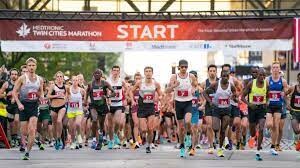
The race made the announcement at 5:30 a.m., only an hour and a half before the race’s expected start time. Despite the short notice, many runners who had traveled to Minnesota still went out to run at their own discretion.
Many runners took to social media to scrutinize the race’s decision: “Sad and pathetic, let’s just cancel all races cause they are outside of people’s comfort level,” one runner said. “What a waste of everyone’s time to make a last-minute decision like this,” said another.
The race organizers have not yet confirmed whether they will provide refunds or offer a credit to participants but intend to make an announcement later in the week.
(10/02/23) Views: 83Marley Dickinson


